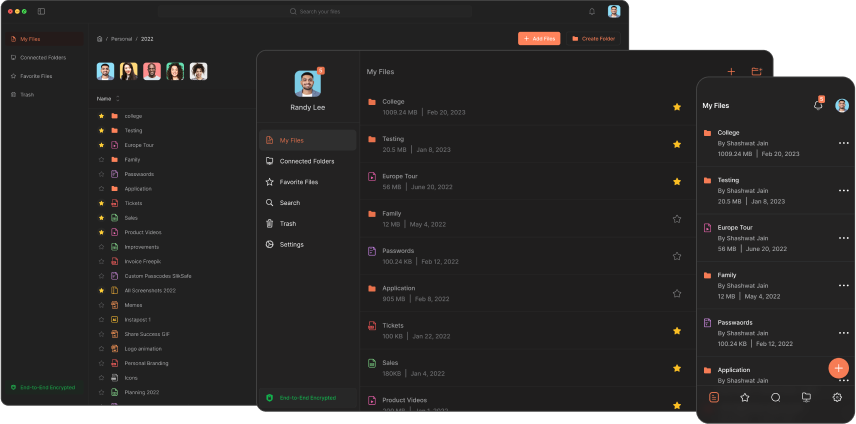Crafting Your Perfect CV: A Comprehensive Guide
In the competitive job market, a well-crafted CV can set you apart from the competition. Your CV is often the first impression potential employers will have of you, making it crucial to present yourself professionally and clearly. In this blog, we'll explore the essential elements that make up the perfect CV, provide a step-by-step guide on how to create one, and share best practices to ensure your CV stands out from the rest.
Table of Contents
- What is a CV?
- Essential Elements of a Perfect CV
- Step-by-Step Guide to Crafting Your Perfect CV
- Tips and Tricks for a Standout CV
- Common CV Mistakes to Avoid
- Conclusion
What is a CV?
A CV (Curriculum Vitae) is a detailed document outlining your professional and academic accomplishments, work experience, skills, and qualifications. Unlike a resume, which typically provides a brief overview of your career, a CV is more comprehensive, often extending to multiple pages. It is commonly used for applications in academia, research, and positions requiring specific expertise or detailed professional history.
Essential Elements of a Perfect CV
1. Contact Information
Ensure your CV starts with your full name, phone number, email address, and LinkedIn profile. Include your address if you prefer, but it's optional in most cases.
2. Professional Summary
A brief section summarizing your professional background, key skills, and career goals. This should be tailored to the job you're applying for.
3. Work Experience
List your work experience in reverse chronological order, starting with your most recent job. Include job titles, companies, dates of employment, and key responsibilities and achievements for each role.
4. Education
Detail your academic qualifications, including degrees obtained, institutions attended, and graduation dates. Include relevant honors or academic achievements.
5. Skills
Highlight your relevant skills, both technical and soft skills. Tailor this section to the job description to emphasize your suitability for the role.
6. Certifications and Training
If applicable, list any additional certifications, courses, or training programs that enhance your qualifications.
7. Professional Affiliations
Include memberships in professional organizations or societies pertinent to your field.
8. Publications and Presentations
For academic or research-focused positions, include a list of your published works, presentations, and conferences attended.
9. Languages
If you are multilingual, list the languages you speak and your proficiency level.
10. References
Generally, it's sufficient to note that references are available upon request rather than including contact details for referees.
Step-by-Step Guide to Crafting Your Perfect CV
Step 1: Choose the Right CV Format
Select a format that best suits your experience and industry:
- Chronological: Emphasizes work experience, ideal for those with a solid career history.
- Functional: Focuses on skills rather than work history, suitable for career changers or those with gaps in their employment.
- Combination: Merges both chronological and functional formats, useful for showcasing both skills and experience.
Step 2: Gather Your Information
Collect all necessary information and organize it logically. Ensure you have accurate dates, job titles, and relevant details.
Step 3: Write a Compelling Professional Summary
Your professional summary should capture the essence of your career in a few sentences. Highlight your main achievements, skills, and career objectives.
Step 4: Detail Your Work Experience
Write clear and concise descriptions of your work experience, focusing on your achievements. Use bullet points to enhance readability.
Step 5: Add Your Education
List your educational background in reverse chronological order. Include details of degrees, institutions, and any honors received.
Step 6: Highlight Your Skills
Tailor this section to the job you're applying for. Use keywords from the job description to ensure your CV passes Applicant Tracking Systems (ATS).
Step 7: Include Additional Sections
Add sections relevant to your career and industry, such as certifications, publications, professional affiliations, and languages.
Step 8: Proofread and Edit
Thoroughly review your CV for spelling and grammatical errors. Consider asking a trusted colleague or mentor to proofread it for you.
Tips and Tricks for a Standout CV
- Tailor Your CV: Customize your CV for each job application to match the job description and company culture.
- Use Action Verbs: Start your bullet points with powerful action verbs, like "managed," "developed," or "achieved."
- Quantify Achievements: Wherever possible, use numbers to quantify your achievements (e.g., "Increased sales by 20%").
- Keep it Concise: Be succinct and avoid unnecessary jargon. Aim for clarity and brevity.
- Visual Appeal: Use a clean, professional layout with consistent formatting. Consider using a CV template for a polished look.
Common CV Mistakes to Avoid
- Spelling and Grammar Errors: These can make a poor impression and indicate a lack of attention to detail.
- Irrelevant Information: Stick to relevant details that support your application and omit unnecessary personal information.
- Vague Descriptions: Be specific about your responsibilities and achievements instead of using generic phrases.
- Inconsistent Formatting: Ensure your formatting is consistent throughout the document, including fonts, bullet points, and spacing.
Conclusion
Crafting the perfect CV requires attention to detail, a clear understanding of your career goals, and the ability to present your experience and skills in a compelling manner. By following the guidelines and tips outlined in this blog, you can create a professional and impactful CV that will help you stand out in the job market.
Remember, your CV is a living document that should evolve as you progress in your career. Regularly update it to reflect new experiences, skills, and achievements. Good luck with your job search!
Download Now
The Slikest Files Experience Ever Made
